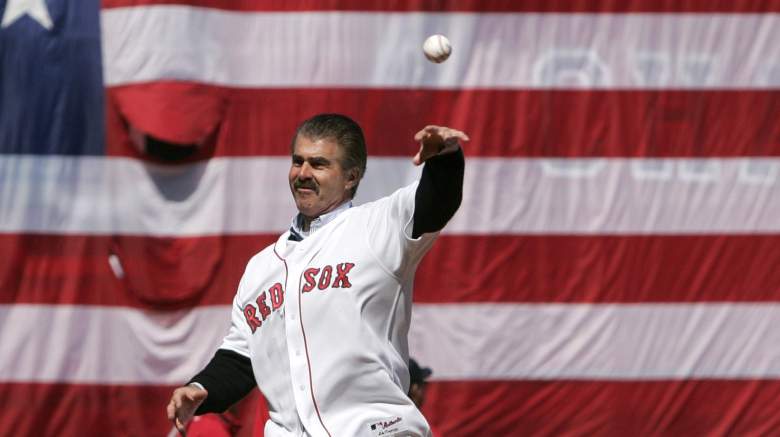
Longtime first baseman and left fielder Bill Buckner passed away on Monday, May 27, according to a statement from his wife, Judy. The 69-year-old succumbed to Lewy Body Dementia surrounded by his family and now his memory will be surrounded by the millions of fans who watched him play for 22 professional seasons.
Although Buckner will likely be most remembered for his error in Game 6 of the 1986 World Series, he had an illustrious career that spanned four decades and five different franchises. The five greatest moments of his career, in no particular order, include the following:
Winning the 1980 National League Batting Title
After being selected in the second round of the 1968 draft by the Los Angeles Dodgers, Buckner made his major-league debut for Los Angeles on Sept. 21, 1969. He didn’t become a permanent fixture in the majors until the 1971 season, however. In January of 1977, he was traded to the Chicago Cubs along with Ivan De Jesus and Jeff Albert in exchange for Mike Garman and Rick Monday. Just three seasons after being moved, he would have arguably the best campaign of his career.
In 578 at-bats for Chicago in 1980, he recorded 187 hits for a league-best .324 batting average. 54 of those hits went for extra bases, highlighted by 10 home runs, to account for 68 runs batted in. Buckner would carry the momentum from that season onto the next.
Making the 1981 NL All-Star Team
Buckner followed up his 1980 season by making the first and only All-Star roster appearance of his 22-season career in 1981. That season he led the NL in doubles with 35, improving his RBI total to 75 and upping his on-base plus slugging percentage to a career-high .829. Buckner would set other career marks in the seasons to come, again leading the NL in doubles in 1983 with 38 and leading the NL in at-bats with 657 in 1982. He was recognized for his consistency and power, placing 10th in the NL MVP voting in both 1981 and 1983.
Winning the 1986 American League Championship
On May 25, 1984, Buckner was traded again. This time it involved a changing of leagues as he was moved to the Boston Red Sox for Mike Brumley and Dennis Eckersley. Two seasons later, he would be an integral part of a Boston team that sought to end the “Curse of the Bambino” by winning the American League pennant. That season Buckner hit a career-high 18 home runs, driving in 102 and played all 162 regular season games. He also got into every game of the postseason for the Red Sox as well.
Winning the 1974 NL Championship
Before Buckner had his infamous incident in Boston or his statistical glory years in Chicago, Buckner was part of the 1974 NL championship team that prevented the mighty Pittsburgh Pirates of the 1970s from reaching yet another World Series. Buckner hit .314 and set a career-high mark for stolen bases at 31 that season, along with appearing in all nine postseason games for the Dodgers. Although the Oakland Athletics and New York Mets prevented Buckner from becoming a World Series champion in his two attempts, Buckner was part of a small company of players to win league championships in both leagues at his time.
Career Hit No. 2,500
Buckner was released in the 1987 season by the Red Sox but before that happened, he accomplished a major milestone on Boston’s roster. On May 19, 1987, in a start for Boston at first base against the Royals in Kansas City, Buckner achieved a level of greatness. In the top of the fourth inning, he took a Bret Saberhagen pitch and turned it into an RBI single to centerfield. That hit was the 2,500th of his career. Before he played his last game, again for Boston on May 30, 1990, he would also collect over 1,200 RBIs.
Buckner’s career was about far more than one play in one game of the 1986 World Series. He may not have produced Hall of Fame-worthy credentials but his ability to stick in the majors from 1969 to 1990 is a remarkable feat.
Comments
Bill Buckner: 5 Greatest MLB Career Moments